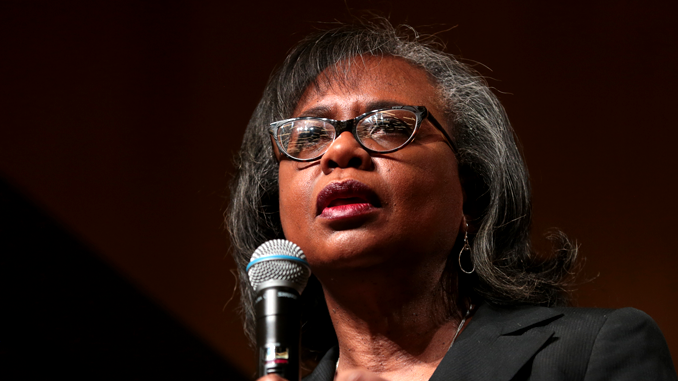
As the days became shorter and the leaves began to turn vibrant shades of red, orange and yellow in the Washington, D.C. area, controversy swirled around a Supreme Court nominee. An allegation of a sexual nature. Questions about the way it was handled by the Judiciary Committee. A sudden and intense media swarm. Senator Orrin Hatch called it a “last-minute attempt to smear the Judge”.
It was the fall of 1991.
Anita Hill’s allegations, which were made to the Senate judiciary committee on September 23, 1991, prompted President GHW Bush to order an immediate “full, thorough and expeditious” investigation. Both nominee Clarence Thomas and Hill were interviewed by FBI agents on September 25, 1991, and the FBI closed the investigation a day later. The sealed affidavit was later released to the press, along with the FBI report, which led both Thomas and Hill to testify to the Senate Judiciary Committee on October 11, 1991.
However, amid a sexual assault allegation made against Supreme Court nominee Bret Kavanaugh by Christine Blasey Ford, Republican committee members are now claiming that the FBI has no role in the vetting process. In fact, the leaked FBI report that President Bush ordered in the wake of Hill’s accusations against Thomas played a starring role during her testimony at his 1991 confirmation hearing.
According to CNN, Senate Judiciary Chairman Chuck Grassley sent a letter to Ford stating that the “job of assessing and investigating a nominee’s qualifications in order to decide whether to consent to the nomination is ours, and ours alone.”
In a tweet, Hatch concurred, claiming that the FBI doesn’t do investigations like this, and that the responsibility belongs to the judiciary committee. However, in 1991, Hatch made the argument that committee members should be able use the FBI report to question Anita Hill at Clarence Thomas’ confirmation hearing:
Senator HATCH. If I could just finish. I promise to be shorter. The statements of the subsequent witnesses are also at variance with Professor Hill’s statements with what she told the FBI. If she happens to testify differently today, we have to find out which of those statements are true, and if I-
The CHAIRMAN. Senator, we are not at liberty to publicly discuss what is in the FBI report. Her statement is what-
Senator HATCH. The heck we’re not. This report has been leaked to the press, they know about it. Part of it has been read to the accuser in this case. I think it is time to be fair to the nominee. He has come this far. He is the one who is being accused. They have the burden of showing that he is not telling the truth here, and he has a right to face the accuser and everything that accuser says, and if he does not, then I am going to resign from this committee today. I am telling you, I don’t want to be on it.
His attempt was successful. He used the report- as did others- while questioning Thomas, pointing out the discrepancies between what Hill told FBI agents and her testimony to the committee:
Senator HATCH. It is new to me too, because I read the FBI report at least 10 or 15 times. I didn’t see any of these allegations I am about to go into, including that one. But she seemed to sure have a recollection here today.
The latest claim by Republicans on the judiciary committee, summed up in a letter from Chairman Grassley to the minority members that the FBI can no longer look into an allegation because it is public ignores the fact that Senator Dianne Feinstein sent the letter with Ford’s allegation to the FBI on September 12th. The specific allegation in the letter was not known to the public until four days later, when Ford came forward on September 16th.
The FBI’s 1991 investigation of the Hill allegation was finished in three days.

1 Trackback / Pingback
Comments are closed.